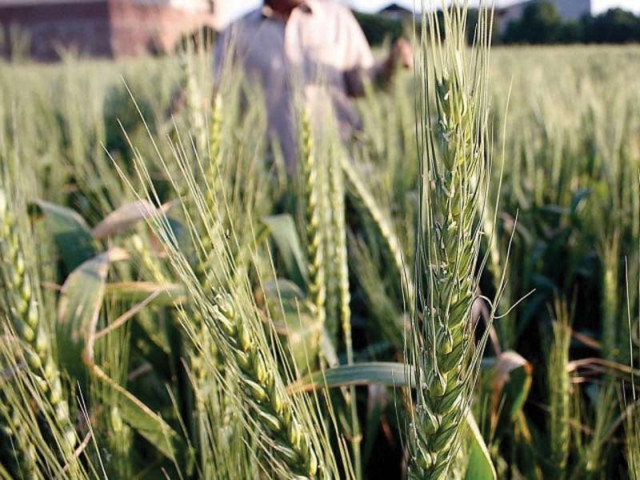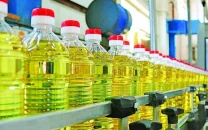Researchers seek incentives to promote organic farming
Propose shift to natural farming as such crops are toxin-free, not harmful to health

Progressive farmers and researchers have urged the government to promote organic farming with a host of incentives so that they could switch over, produce toxin-free food and fetch better prices for organically grown crops.
Progressive farmer and Sindh Chamber of Agriculture (SCA) Senior Vice President Nabi Bux Sathio said “people around the globe love to eat organic food, although there is a world of difference in terms of prices of organic and inorganic crops”.
He said if the government offered certain incentives including loans to farmers and activated market committees for the promotion of organic crops, growers would turn to natural farming, which suits both soil fertility and people to a great extent.
He said organic crops were dearer than the inorganic crops as farmers had to work hard and got less produce in comparison with the inorganic crops.
Eminent researcher and Sindh Agriculture University (SAU) Dean Faculty of Crop Production Professor Dr Inayatullah Rajpar said: “We should switch over gradually to natural farming as organic crops are way more useful that the inorganic crops because of toxin-free food, rejuvenated soil health and above all they do not impact the health of people. No fatal diseases are caused by natural farming.”
“The soil in our country has minerals and has less than 1% organic matter while the land in European countries contains over 5% organic matter, which is useful and better,” he said.
“If a farmer opts for natural farming abruptly, he will get 30% less yield, will have to work hard in the initial years and will get better returns gradually.”
He pointed out that there were growing calls for doing inorganic farming to meet the rising demand for food in the country as such farming could give more than 30% yield.
Speaking about the history of inorganic farming, the researcher recalled that chemical fertilisers were imported during 1950-1951 and distributed free-of-cost initially in the country to promote inorganic farming.
Inorganic farming started in a fully-fledged manner once the Green Revolution came. The term “Green Revolution” was first used by William S Gaud, the administrator of the US Agency for International Development (USAID), in a speech on March 8, 1968.
The Green Revolution, or the Third Agricultural Revolution, was a period of technology transfer that saw greatly increased crop yields. These changes in agriculture began in the developed countries in the early 20th century and spread globally till the late 1980s.
In the late 1960s, farmers began embracing new technologies such as high-yielding varieties of cereals, particularly dwarf wheat and rice, and the widespread use of chemical fertilisers (to get high yields as new seeds require far more fertiliser than the traditional varieties), pesticides, and controlled irrigation.
At the same time, newer methods of cultivation, including mechanisation, were adopted, often as a package to replace the traditional agricultural technology. This was in conjunction with policy changes being made by the developing nations, such as privatising fertiliser manufacturing and distribution.
Published in The Express Tribune, June 5th, 2024.
Like Business on Facebook, follow @TribuneBiz on Twitter to stay informed and join in the conversation.



















COMMENTS
Comments are moderated and generally will be posted if they are on-topic and not abusive.
For more information, please see our Comments FAQ